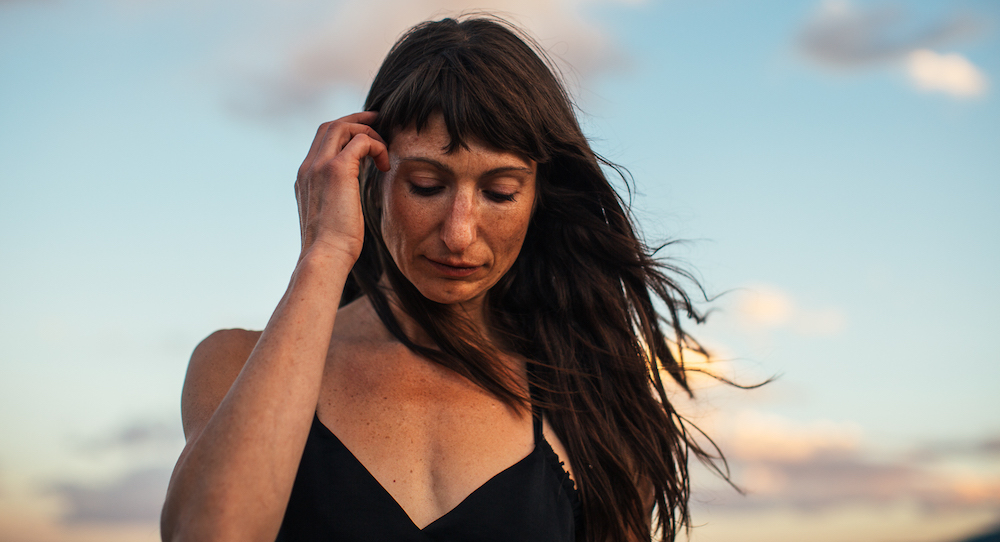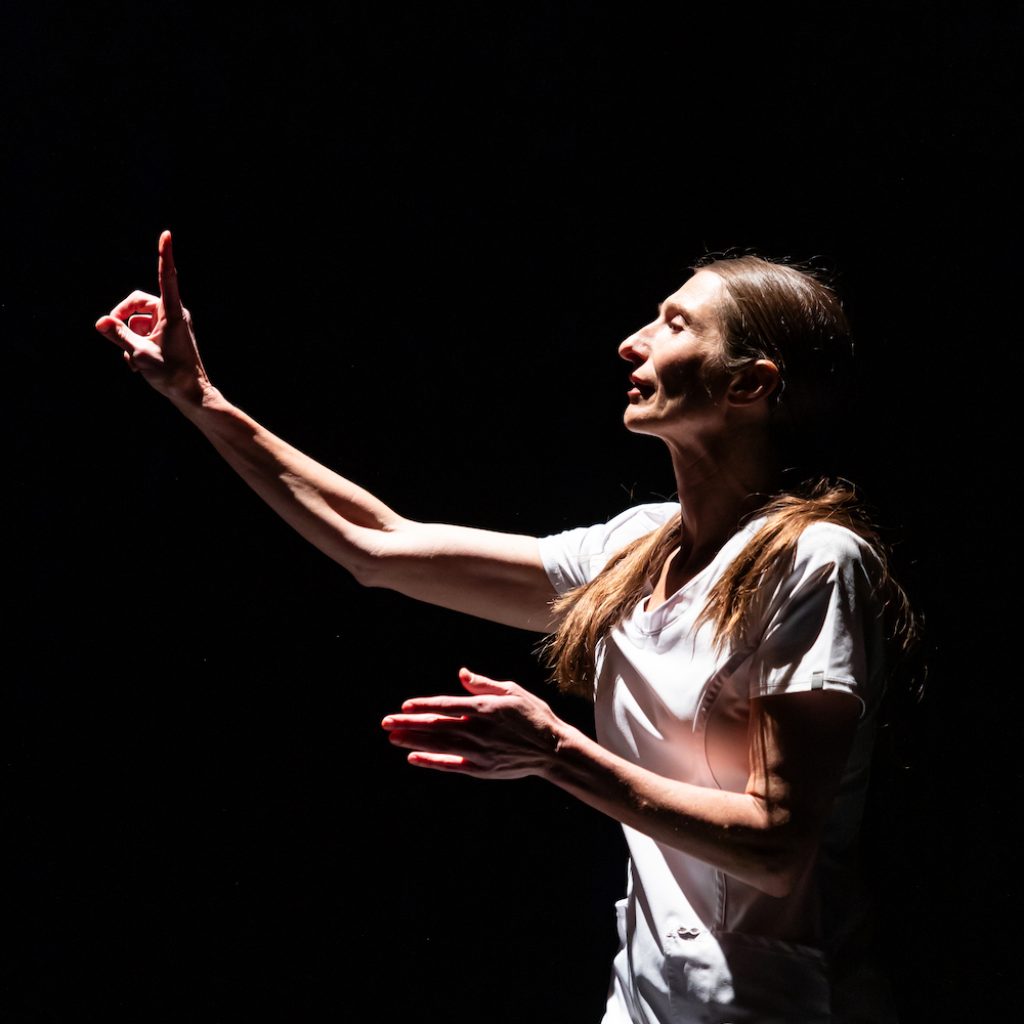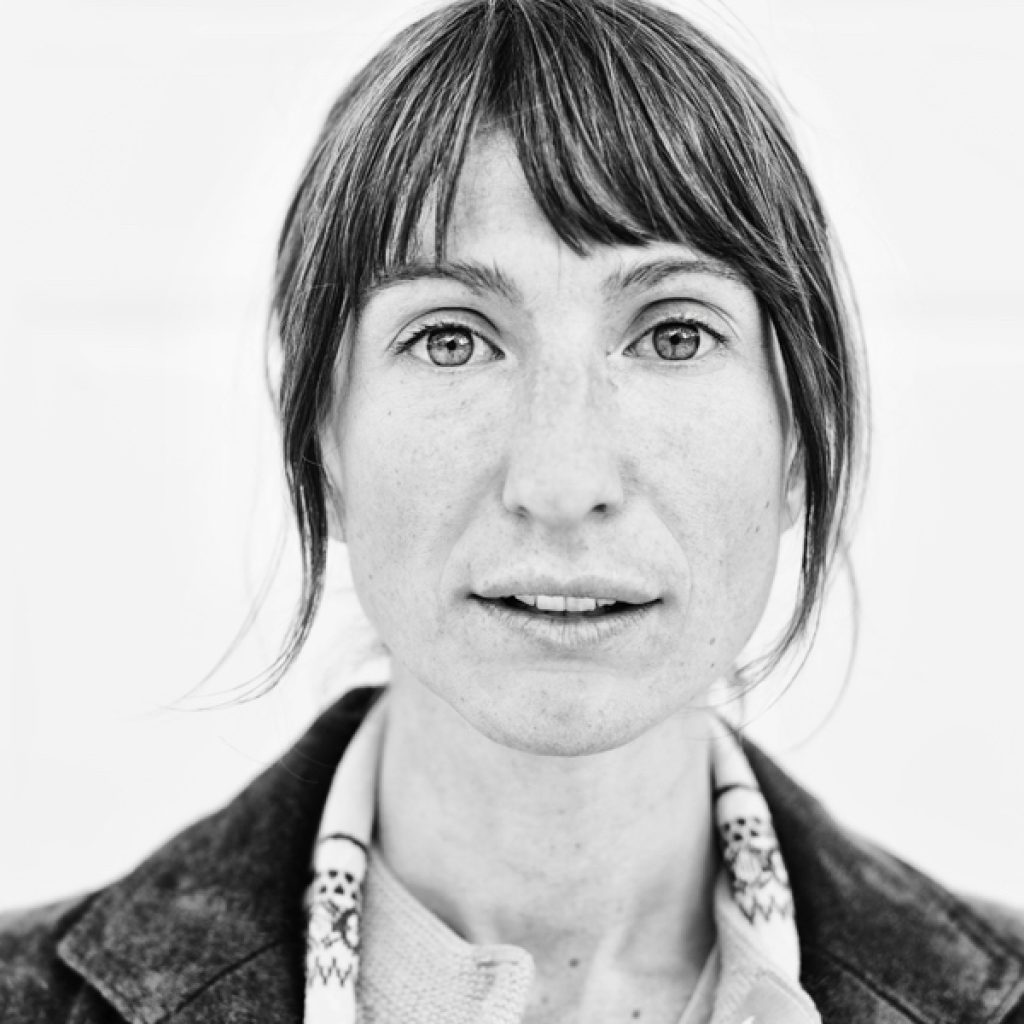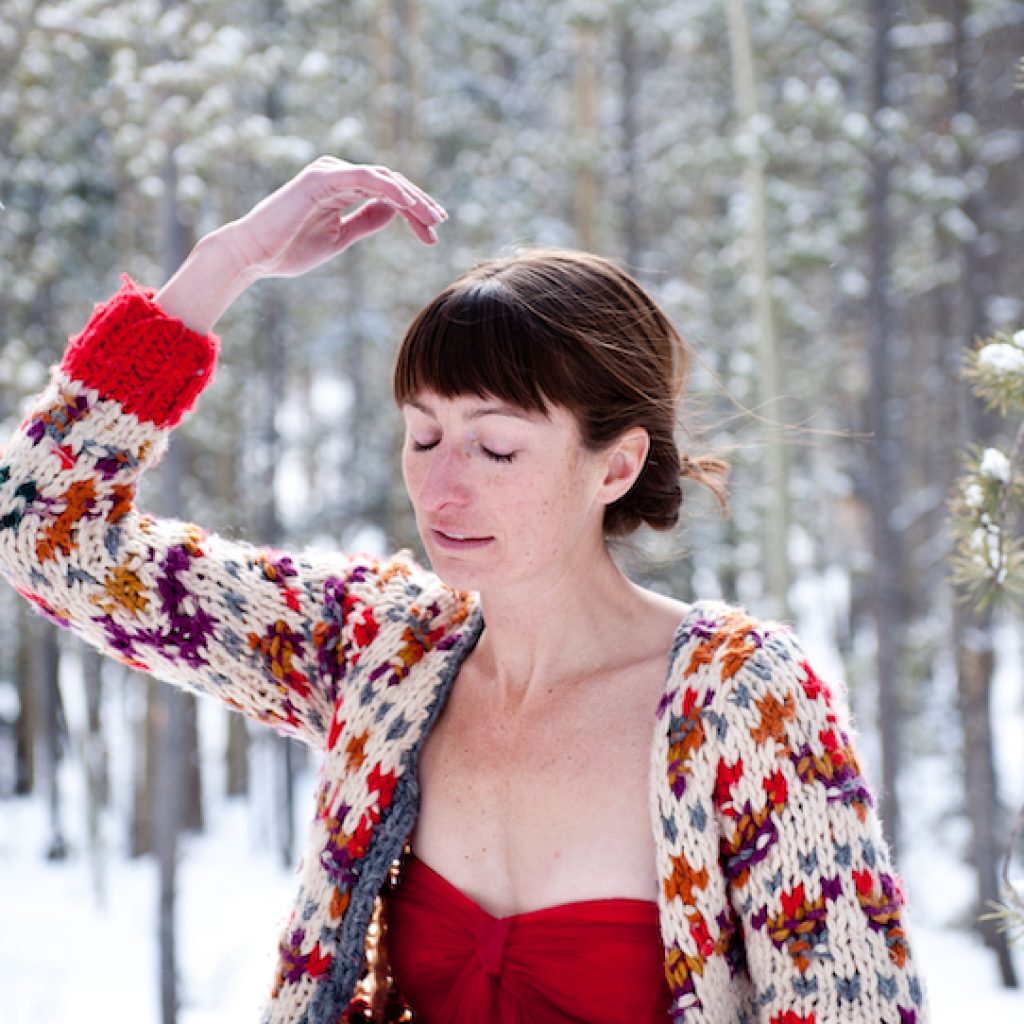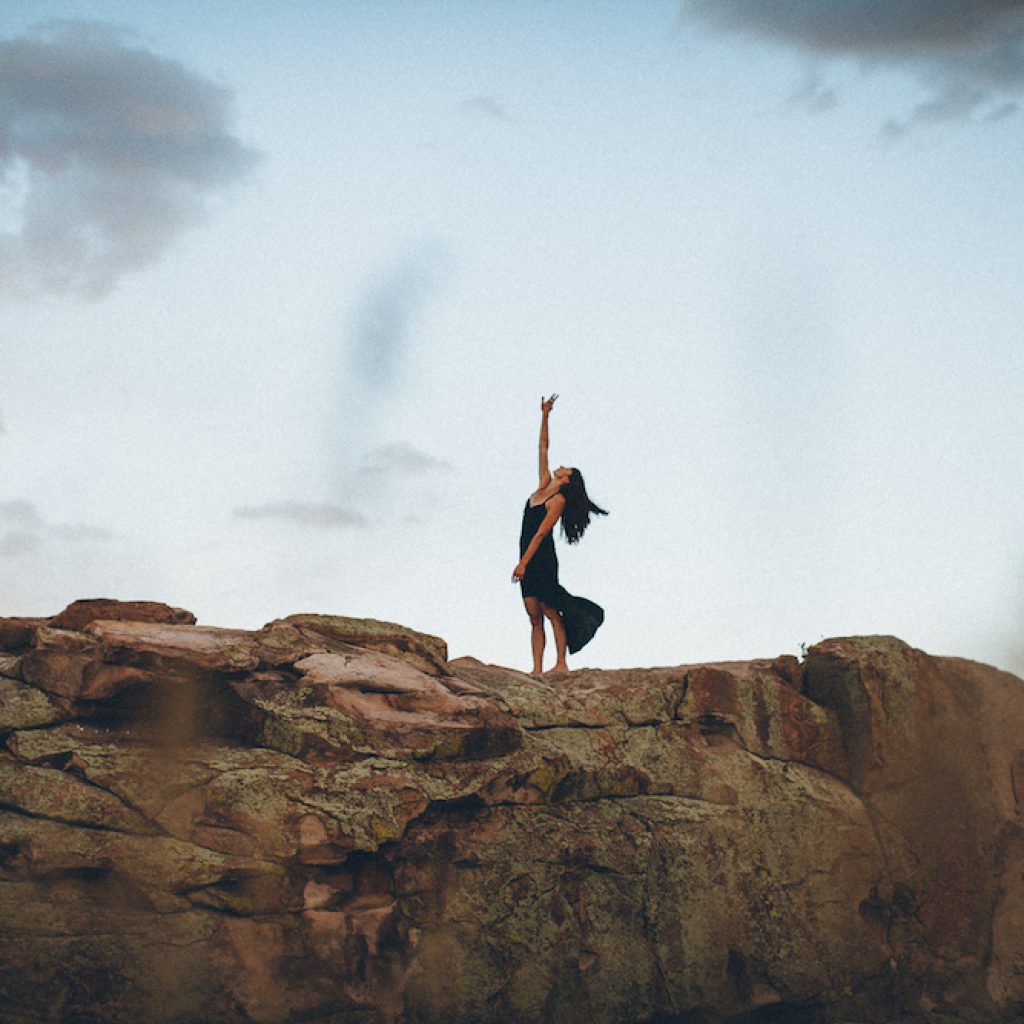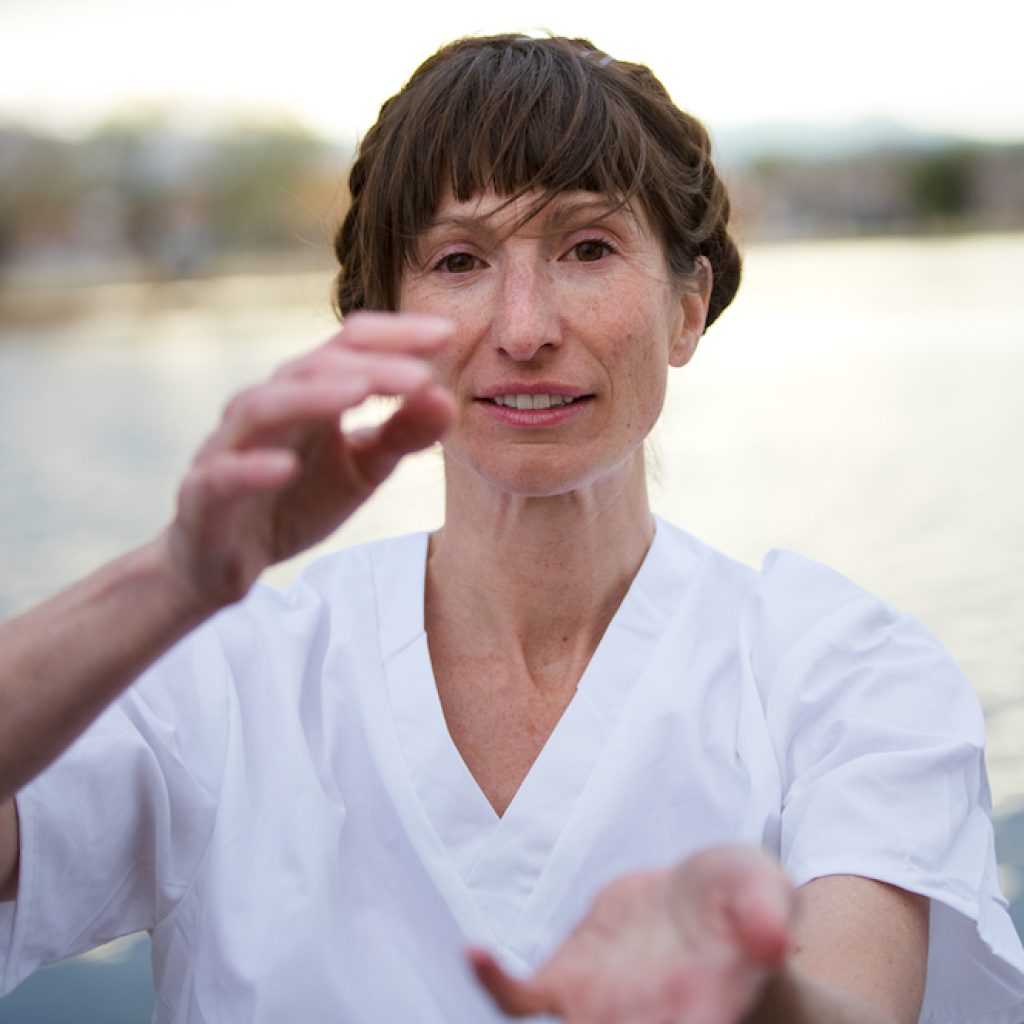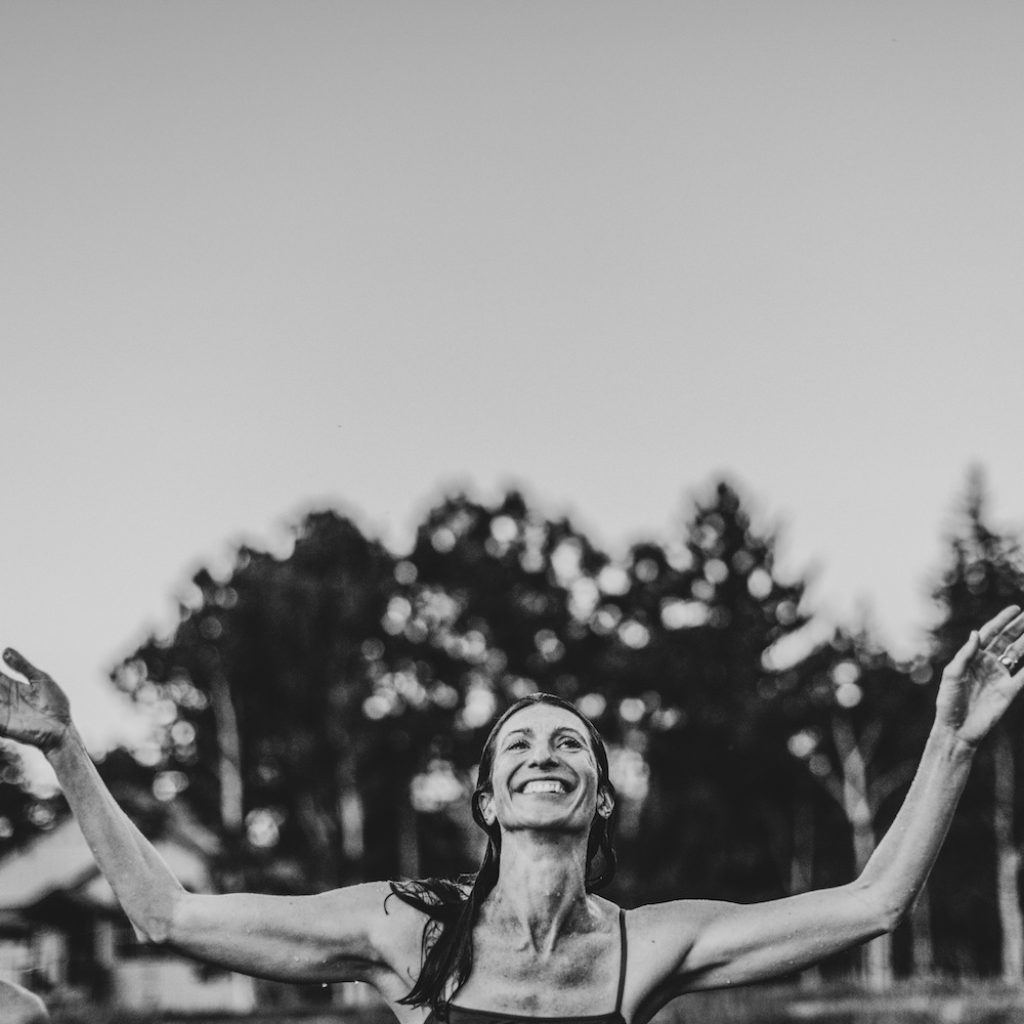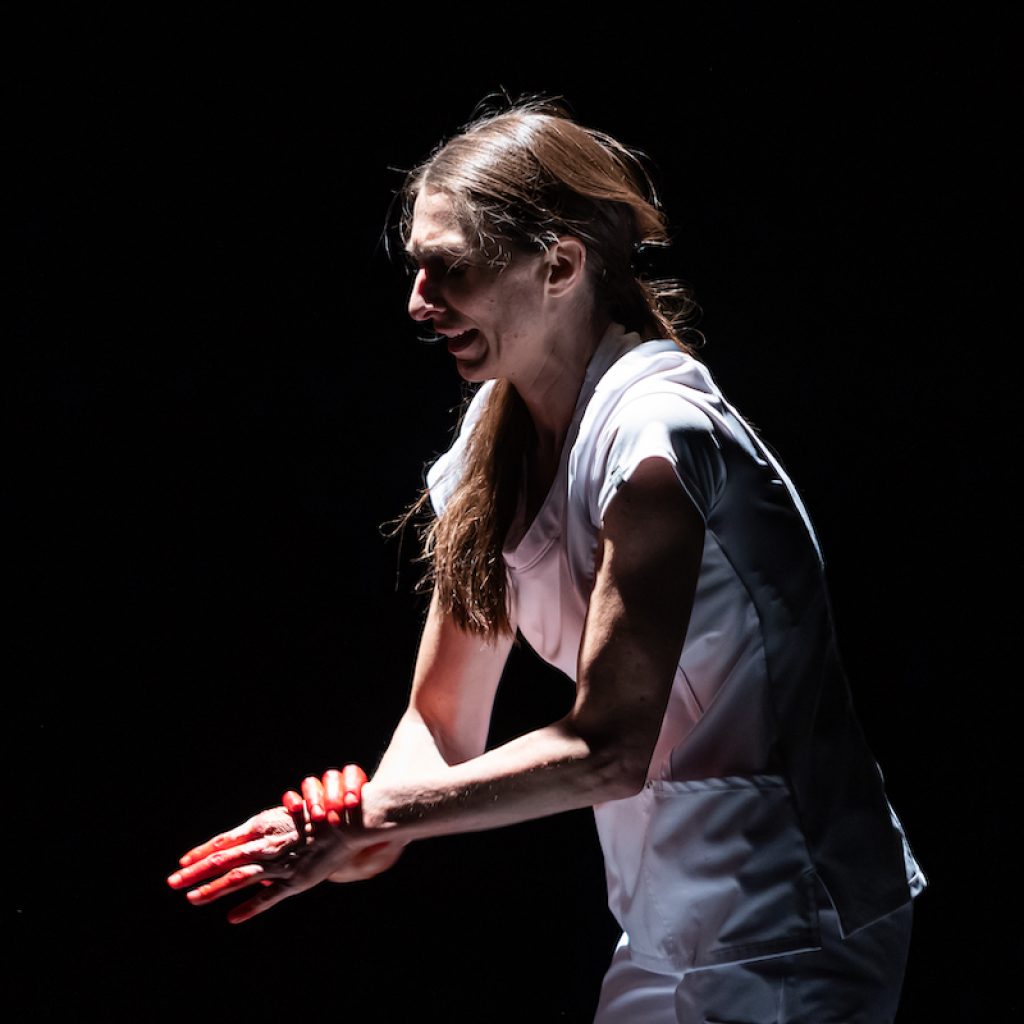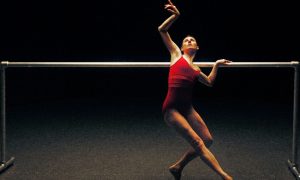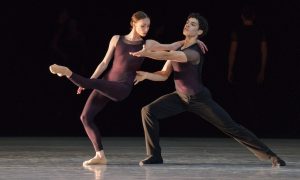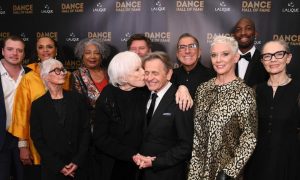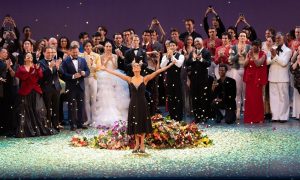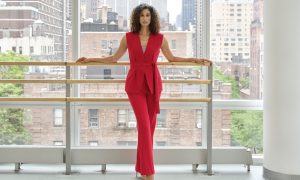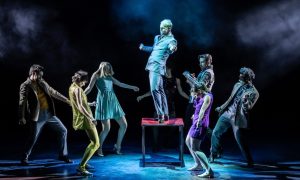We all experience hardship in life: illness, loss, heartbreak. Some of us manage to shape that pain into purpose, that which eases the path for those experiencing similar struggles. Tara Rynders – a dancer, choreographer, trauma nurse and non-profit leader – is one such person.
Her personal, professional, and artistic experience led her to create The Art and Heart of Healthcare Institute: offering therapeutic movement and expressive arts workshops, as well as other services, to support nurses and other healthcare professionals. Rynders has also presented movement theater works for advocacy, awareness-raising and support with respect to the challenges healthcare workers face.
Through a model called Courageous Care, the organization addresses burnout and compassion fatigue: a phenomenon occurring when healthcare professionals, and those in similar fields, serve and care for others so much that it depletes their own well-being. The goal is to turn that into “compassion satisfaction” — when these individuals receive what they need to continue serving as they do, as they must.
Dance Informa speaks with Rynders about the organization and its work, her concert works, where she sees it all going from here, and much more. In service to her work and mission – giving voice to these individuals, so that we can hear their truthful stories and perspectives – we’ll pass the mic over to her. Over to you, Tara!
We’d love to hear more about how your life experience has brought you to where you are and what you’re doing with The Art and Heart of Healthcare Institute!
“There were many entry points, really. Growing up, dance was my medicine and healing. The studio was my escape: home where home wasn’t, with family life tumultuous. I’ve always loved helping people and traveling. I thought that working as a nurse would help me to do both, so I followed that path. I still danced all through nursing school; it didn’t feel like stopping was ever an option.
Then my mom got sick at 49 and passed away from cancer. I felt like my foundation was gone. The only thing I could think of was ‘run to what brings you joy’…that was always dance. So, I got my BFA in dance, still working as a nurse on the side. Everyday, within an incredible community, I danced and cried.
Then my sister fell into a coma, as a healthy 26-year-old – no one knew why. She lost her ability to move or to speak. I took a semester off school to take care of her. Every morning, she would wake up and cry as she realized what happened to her, and I would just hold her. Then, at night, I turned on her favorite song, ‘Party in the USA’, and danced around her room like a wild woman – being as free as possible in my body, hoping she would feel that freedom in her. Both of us laughed like crazy. It was such a needed reprieve from all we were carrying. I realized that the depths we feel our grief are the depths we can feel our joy. From that inspiration, I created a work focused on intimacy and interactivity that took place in my home, helping others to experience that same kind of joy and release.
Later, I found out I was having an ectopic pregnancy. While I was pretty much passed out, my nurse held my hand and said, ‘I am here and you’re going to be okay.’ As a nurse myself, I was so used to being the one caring that I almost felt embarrassed being the one cared for!
It made me realize that we as nurses have such a sacred opportunity to care for others, that it is such important work, and that receiving care is a big part of making that happen – and thus began The Art and Heart of Healthcare Institute.
At first, nurses really didn’t even realize or want to admit that they were struggling; they would say things like ‘what do you mean, we’re fine.’ Along with some amazing collaborators, we created an immersive theater performance to depict the challenges nurses face. It took off from there!”
I’d also love to hear how the organization’s workshops look and feel. What’s it like to be in the room? What happens there that you’d like to highlight?
“There are a few key components that I love and see as being really transformational for people who experience these workshops. The very first thing we do is wash their hands. It sort of flips that ritual of their work to where someone is doing it for them. When they wash their own hands in the future, we hope that they remember they also need and deserve care.
We also ask them, ‘What are you hoping for?’ They often cry because they’re so used to being the one to listen in that way. Because many nurses tend to shy away from receiving care, we intentionally shape the workshop so it’s disruptive enough that they don’t get to have a moment of ‘oh God, I don’t want to receive.’
Then, we get into play! We make costumes and move around in the space on this mission together. Everyone’s dancing around and belly laughing. It’s one of the favorite moments of the workshops for many who attend! This play and ease humanizes them; there’s no being in charge of life and death, and they can just be themselves without the weight of that responsibility. We also write and share poems, storytell, and celebrate one another. We see how many of us are carrying the same weight – and it feels less lonely.
One attendee said, ‘I’m a mother, an educator, a nurse, but here…I was just me.’ Another said that there can be feeling ‘not good enough’ to be in their roles; if they make a mistake, it can stay with them for awhile. But in an environment of care, play and understanding, they can just be, be okay with just being a human and that’s more than enough.
We focus on patient outcomes a lot. But – as we in our organization often note – if we shift the focus to caring for each other, that carries over to how we care for our patients. Case in point: another attendee said, ‘I can tell my therapist or partner how hard my day was, but there’s something about telling another nurse.’ In many ways, we’re the ones we’ve been waiting for!”
Empirical data is beginning to validate the efficacy of these interventions. That matters with the values and processes of Western healthcare, and the wider Western world, being what they are. Please tell us more there.
“From the very first workshop, I knew we needed to do an IRB [Internal Review Board] study. We got IRB approval, as well as a two-year contract, in order to do so. Right off the bat, we got incredible results: including decreases in burnout, secondary traumatic stress, isolation and over-identification (going back to feeling shame and self-doubt for making mistakes, instilling instead the idea of ‘I made a mistake but I’m not a bad person‘) and increases in self-compassion, self-kindness and connection.
We were also able to do a six-month follow-up, and we found that these results sustained. That helped assure me that we’re really doing something tangible and lasting here, versus just slapping a bandaid on the effects of a broken system.”
Can you kindly tell us more about your project, A Nurse Is Calling? What, in particular, did you hope to express and offer with the project?
“This project is actually something I’ve wanted to do since COVID, to humanize the nurse. There’s this whole thing about ‘healthcare heroes’, the ‘not all heroes wear capes’ narrative. It’s lovely in intention, but – in the longer term – has actually been detrimental to our field. Of course, it feels great to be honored and acknowledged, but we’re also just human…and we’re scared! We need to be able to share our fear – and at the end of the day, we’re alone in what we carry.
We demonstrate that effect in the work through a nurse in a boxing ring. Everything’s ‘yeah, yeah, healthcare hero’, ‘rah-rah’ – but then the nurse is alone in the ring. We show this in workshops and nurses love it, because it really shows the dark underbelly of the ‘healthcare heroes’ narrative.
The work also shares my stories of loss, and how my loss has intertwined with losses my patients have also experienced. It’s both, because our lives and our patients’ lives overlap and become interwoven. Overall, that’s a truly beautiful thing, but also really hard to experience through the piece. The work cares for me, in what I’ve experienced, but also for those who see it.”
Where to from here? To the extent that you can now share, what might you be envisioning for The Art and Heart of Healthcare Institute, performance projects and beyond?
“We’re in talks with healthcare systems about where this is going, plus hoping to tour with workshops and A Nurse Is Calling. Additionally, also in conjunction with healthcare systems, we’re working on a wellness curriculum for nurses called ‘We Matter’. Nursing schools often have wellness on the syllabus, but it can be a 10-minute video and then they check that off.
Our curriculum is much more comprehensive. It works with this concept of ‘rebrilliancy’, instead of ‘resiliency’. The message is often ‘be resilient,’ but after my mom passed away, I realized that we need to redefine what that means and what it looks like in practice. We’re often missing the step of feeling the emotion, first getting soft so that we can stretch to meet whatever we’re facing.
We believe that what we actually need more of is reflecting back at people the brilliant humans that they already are, and that we have each other. It’s less about that image of the lone flower growing out of the concrete, that ‘resiliency’ narrative, and more people being together in a beautiful garden of flowers – or trees with an interlocking root system, nourishing each other through that.
With embodied grief and embodied joy, we’re hoping to infiltrate these systems with a spirit of ‘we matter!’ For those who have gone into healthcare work because they’ve gotten the message that they’re worthy because they give, and who feel shame when they receive…we want to offer them that nourishment and help challenge that narrative. We want them to see that they, too, truly do matter!
Rynders recently presented A Nurse is Calling, directed by Dr. Clare Hammoor and with piano from Ryan Marvel, at the Newman Center for the Performing Arts (Denver, CO). Learn more here.
By Kathryn Boland of Dance Informa.


